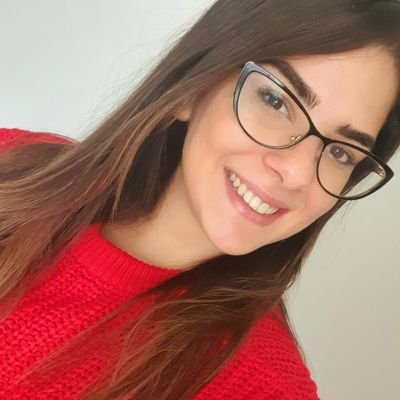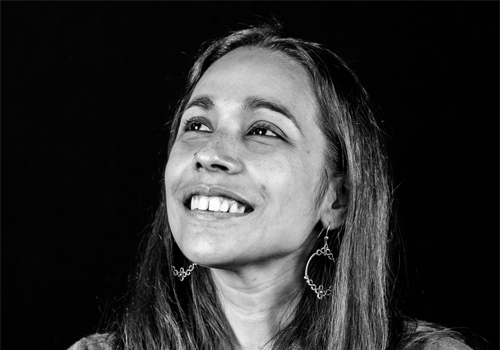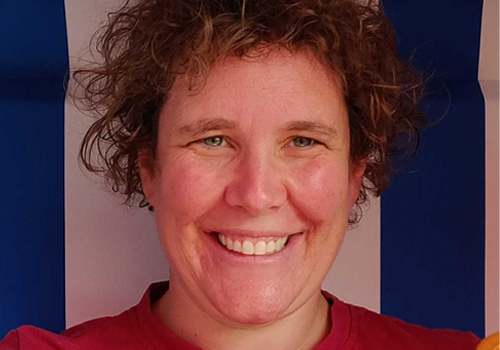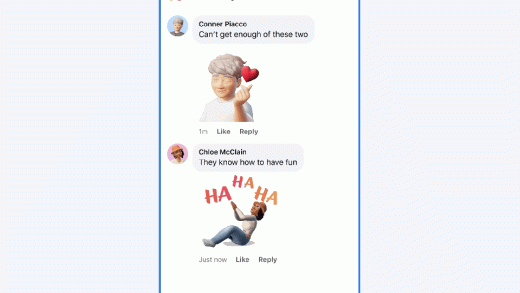A research study by The National Center for Women & Information Technology showed that “gender diversity has specific benefits in technology settings,” which could explain why tech companies have started to invest in initiatives that aim to boost the number of female applicants, recruit them in a more effective way, retain them for longer, and give them the opportunity to advance. But is it enough?
Four years ago, we launched a diversity series aimed at bringing the most inspirational and powerful women in the tech scene to your attention. Today, we’d like you to meet Stephanie Brubaker, Founding Engineer, FullStory.
Today’s Woman in Tech: Stephanie Brubaker, Founding Engineer, FullStory
 Stephanie Brubaker is a founding engineer and Senior Director of Engineering at FullStory. She currently leads the Application Experience engineering teams, which works closely with Product to create a high-leverage digital experience analytics platform for customers. Stephanie previously served as an engineer at Google, where she worked on the Google Web Toolkit and complex version control systems. After earning her master’s degree in computer science from Georgia Tech, Stephanie started her career as a technical architect at Accenture, where she provided infrastructure support and guidance for a Fortune 100 financial services firm. If it’s a weekend, the odds are she’s watching volleyball or tennis (clearly she has excellent taste in sports!).
Stephanie Brubaker is a founding engineer and Senior Director of Engineering at FullStory. She currently leads the Application Experience engineering teams, which works closely with Product to create a high-leverage digital experience analytics platform for customers. Stephanie previously served as an engineer at Google, where she worked on the Google Web Toolkit and complex version control systems. After earning her master’s degree in computer science from Georgia Tech, Stephanie started her career as a technical architect at Accenture, where she provided infrastructure support and guidance for a Fortune 100 financial services firm. If it’s a weekend, the odds are she’s watching volleyball or tennis (clearly she has excellent taste in sports!).
When did you become interested in technology? What first got you interested in tech?
Engineering was in my DNA. My dad was an electrical engineer and had a big workshop in the basement. One of my earliest memories, in fact, is burning myself on a soldering iron. He was always doing projects that I got to help him with–running electrical cabling, changing the brake pads in the car, fixing broken appliances. As a child, it was something that I just thought everyone did. My dad’s example really influenced my curiosity around technology.
How did you end up in your career path? What obstacles did you have to overcome?
I owe a lot of credit to one of my high school teachers, Ms. Julia Maxey. When I was a senior in high school, there was a new class called Computer Science that they had just added to the schedule. I was picking up my books, and Ms. Maxey pointed to a CS textbook and said, “You need this. You are going to take this class with me.” I had no idea what it was, but I trusted her, so I took the course. Over the course of the year, as I applied for colleges and was really thinking about my path, it became clear that Computer Science was the field I wanted to major in.
I went to college at Swarthmore. At the time, the computer science program was very small, and I was one of only two women in my class. It was a fairly unusual place to be studying science and engineering because it was a small liberal arts school, but I think I reaped a huge benefit from the broad perspective and focus on communication and problem solving that come with a liberal arts education.
After graduation, I went straight into a PhD program at Georgia Tech. I was the first person in my family to graduate from a four-year college, so I felt the need to take my education as far as possible. About three years into my PhD, I realized that my heart wasn’t in it. I saw the academic career that was laid out for me, and I wasn’t excited about it. Instead, I wanted something that moved faster and was closer to customers and solving real-world problems.
I wanted something that moved faster and was closer to customers and solving real-world problems.
I made the hard call to leave with my Masters degree, and landed at one of the Big Four consulting companies before joining Google as an engineer. Google was a fantastic place–and an enormous company. I definitely learned to be a great engineer at Google. However, when you are working at a large organization, it can be extremely difficult to see the full scope of a project or impact, and in many ways you lack control over your destiny. This is why I ultimately left Google to join FullStory as a founding engineer. It was the best decision of my professional life, and I now get to spend my time solving some of the biggest technology problems that impact real people as they live and work online.
Did you receive support from your family and friends? Do you have a role model?
I’ve been lucky to have a roster of people who have influenced and supported me at critical points in my journey, starting with my dad and Ms. Maxey. I don’t think you can overstate the profound impact that teachers can make, particularly at pre-college levels. My career path was shaped by that early push from someone who could see the horizon better than I could and who understood how my interests could lead me to a fulfilling career. One of the reasons why I sit on the board of my local high school’s robotics team is so that I can provide this perspective and mentorship to the next generation of technologists.
I am also a very “do it myself” kind of person, but that doesn’t really work in situations that require prior experience. Particularly around technology and leadership, there weren’t many role models and mentors available earlier in my career. It was difficult to see above the surface because I didn’t have anyone to talk to in order to understand where things could go in the future. Of course, I could read books, but things like resource groups or communities for women in tech simply weren’t available to me. I think that is the most common scenario for women and people of color even today: limited connections and access to leaders and mentors in their communities. This is one of the primary reasons why many women find it difficult to advance: they don’t know what that blueprint looks like.
Did anyone ever try to stop you from learning and advancing in your professional life?
I wasn’t explicitly stopped from learning and advancing as much as I was strongly encouraged to “stay in my lane. ” In some of my earlier roles, there was the clear sense that I was there to do the job I was given and not think too far outside of that. My role was to build technology based on requirements I was given. It was very clear that I was not to think about a more strategic approach to the challenge or a more elegant solution to the business problem–because these were addressed at the management or executive level, and not on the technical track.
But real growth only happens when you’re outside of your comfort zone. When I joined the FullStory team as a founding engineer, it was completely transformative for me. From day one, the attitude has been “OK, we have to do a bunch of things that we’ve never done before, and everybody needs to pitch in.” Even today, I am still constantly doing things I have never done before, trying to navigate them as thoughtfully as possible, and learning from that process.
A day in Stephanie’s life
I was a founding engineer at FullStory and currently lead the Application Experience team, which is responsible for the customer-facing app. FullStory has pioneered the category of digital experience intelligence, and today more than 3,200 companies use our technology to perfect the digital products and experiences they provide to their customers. Our customers include brands ranging from Chipotle, Peloton and JetBlue through VMWare, Fortive and Segment. We operate at a scale that very few companies can, and we are committed to solving the hardest digital problems with the best technology available.
I’ve been at FullStory almost 10 years, and I am not sure there has ever been a typical workday. I lead a large team, but I am also deeply involved in technology and strategy. Today, for example, I’ll work on performance reviews; think about strategy and objectives for our next fiscal year; and then work closely with some of my engineers to figure out the right architecture for some arcs we are working on. I love this question because it makes me appreciate the tremendous variety of things I get to do every day!
What are you most proud of in your career?
This one is simple: that I’ve stayed incredibly technical even as I manage a large team. Many women bail out of the technical ladder as they reach the higher career levels. Even though I don’t get to spend as much time directly building things day to day, I read all the design docs, I ask questions, and I have discussions about the important architectural choices that will drive our future success. This is something I care deeply about that is also incredibly fun and exciting, and I know it is to other women out there as well.
Why aren’t there more women in tech? What’s your take on that?
I learned pretty quickly that engineering culture is one where people tend to be extremely blunt and extremely confident in what they are saying. It can be very intimidating–especially for women, who may not naturally operate this way, or have been discouraged socially from being “too opinionated”–to push back and try to present alternate views in very technical discussions because there are such loud voices in the room. So you have to learn to get into the fray.
A strong starting opinion and a willingness to change your mind is the mindset that makes great leaders and colleagues.
But it isn’t just getting comfortable with putting yourself out there. You have to be okay with being wrong. You are sometimes going to speak up and be incorrect, and that is perfectly fine in an environment like FullStory, where the people sitting next to you are comfortable with that fact. We use this phrase a lot in engineering: “strong opinions, loosely held.” A strong starting opinion and a willingness to change your mind is the mindset that makes great leaders and colleagues.
For women, starting out with that strong position is often hard because they’re afraid they will say the wrong thing and be judged for that. Taking chances is essential to rising through the ranks.
Could you name a few challenges (or obstacles) women in tech face?
I think women often underestimate themselves or hold back, and there has been a lot written about that concept. But a lesser-known obstacle is the widespread assumption that women have to lean into soft skills. For example, women tend to advance to a certain technical level, and then veer into project management or product management because that is a “safer” and frankly more expected route. That mentality affects womens’ own careers and feeds into some of the more environmental things that we experience such as the scarcity of women in engineering or technical leadership.
Representation is also incredibly important, and it has to come from the leadership level. If a woman on my team says “I am not really cut out to be an engineer,” I try to really understand where that sentiment is coming from, particularly if the work they are doing is outstanding. Where do those friction points lie? Why do they perceive themselves as unsuited to a technical role? Sometimes it is helping to reframe situations, work on resilience, or change the team and culture dynamic.
It has also been interesting to see how some people respond to being challenged by female leaders. There have been engineering interview candidates who have responded totally differently to male interviewers than female ones. We try to incorporate a diverse panel of interviewers for that reason. It is important to create an environment that recognizes women and men equally as leaders.
How would our world be different if more women worked in STEM? What would be the (social, economic, and cultural) impact?
The biggest thing is that the set of problems solved by technology would be much broader. Companies need a diversity of opinions and viewpoints in order to effectively leverage technology to solve problems that are unique to women. Particularly in the area of women’s health, there is a whole market that is being underserved by a limited view of how women consume technology.
On the flip side, there is a perception that female founders can only be solving problems for other women. There is an unfair expectation that female-led businesses be built around beauty or fashion or wellness. This is obviously really shortsighted–both culturally and economically. I know amazing women who are building extremely technical products and their success is sending a really strong message. I can’t wait to see more of these female-led companies at the forefront.
The discussion about diversity is gaining momentum. How long will it take to see results from the current discussion?
Nothing happens overnight. I wish we could flip the switch and things would be different. But I am seeing really promising signs, including more female founders, as well as honest conversations about the issues that are holding women back. But it takes a sustained and universal commitment to create sweeping change.
What advice (and tips) would you give to women who want a tech career? What should they know about this industry?
There are a lot of different companies out there, and this industry changes more rapidly than any other. The tech industry is packed with new opportunities and, particularly at this moment, hiring is crazy. Be sure to look at the advantages of a big company versus a small one. Look at the cultural aspects of a company. Really find a place where you feel engaged, because the reality is that you’ll do your best work in a place where you feel comfortable and supported. Focus on what excites you and find the places that will foster your career growth.
There’s an old adage that says: “Find a job you love and you’ll never work a day in your life.” The company or role that sparks your interest will likely change form many times in your career, but if you keep yourself open to taking the next leap, you’ll find something fulfilling on the other side.
More Women in Tech:
- Women in Tech: Sveta Smirnova, Principal Support Engineering Coordinator, Percona
- Women in Tech: Kristi Flores, CMO at Tektronix
- Women in Tech: Kristen Foster-Marks, Director of Engineering – Value Delivery, Pluralsight
- Women in Tech: Arti Lalwani, Risk Management and Privacy Knowledge Leader at A-LIGN
- Women in Tech: Lynne Doherty, President of Worldwide Field Operations, Sumo Logic
For even more Women in Tech, click here
The post Women in Tech: “Real growth only happens outside of your comfort zone” appeared first on JAXenter.
Source : JAXenter













